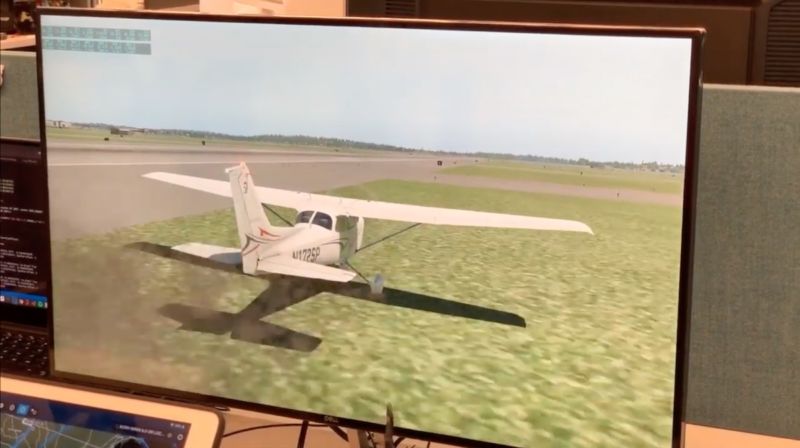
Enlarge / A plane in the researchers' demonstration attack as spoofed ILS signals induce a pilot to land to the right of the runway. (credit: Sathaye et al.)
Just about every aircraft that has flown over the past 50 years—whether a single-engine Cessna or a 600-seat jumbo jet—relies on radios to safely land at airports. These instrument landing systems are considered precision approach systems, because, unlike GPS and other navigation systems, they provide crucial real-time guidance about both the plane’s horizontal alignment with a runway and its vertical rate of descent. In many settings—particularly during foggy or rainy nighttime landings—this radio-based navigation is the primary means for ensuring planes touch down at the start of a runway and on its centerline.
Like many technologies built in earlier decades, the ILS was never designed to be secure from hacking. Radio signals, for instance, aren’t encrypted or authenticated. Instead, pilots simply assume that the tones their radio-based navigation systems receive on a runway’s publicly assigned frequency are legitimate signals broadcast by the airport operator. This lack of security hasn’t been much of a concern over the years, largely because the cost and difficulty of spoofing malicious radio signals made attacks infeasible.
Now, researchers have devised a low-cost hack that raises questions about the security of ILS, which is used at virtually every civilian airport throughout the industrialized world. Using a $600 software defined radio, the researchers can spoof airport signals in a way that causes a pilot’s navigation instruments to falsely indicate a plane is off course. Normal training will call for the pilot to adjust the plane’s descent rate or alignment accordingly and create a potential accident as a result.